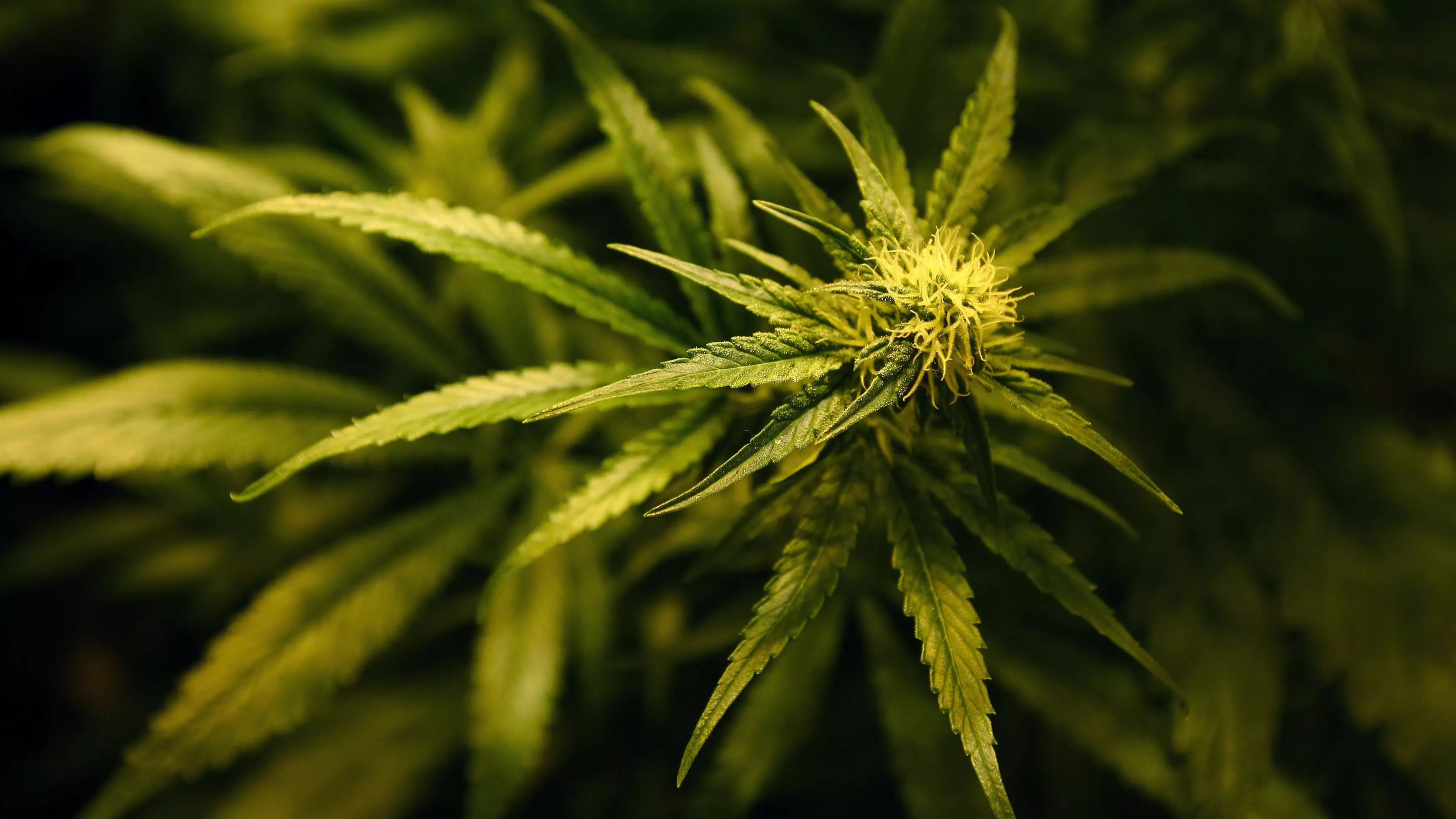
Unless you're trapped in a world of ganja leaf profile pictures, jungle mixes and YouTube videos linking prohibition to the Illuminati, it's unlikely the legalisation of cannabis is at the top of your political shopping list in post-Brexit Britain.
Sure, 4/20 activists might be doing a good job of convincing others on the /r/weed subreddit to swallow the red pill and legalise it, but they're probably not doing much to persuade their parents, grandparents or any of the rest of the law-abiding majority.
However, recently, the Adam Smith Institute (ASI) have been putting forward a market-driven argument for the legalisation of recreational cannabis and they're hoping to change the discourse around the issue.
Advert
As one of the UK's leading right-wing think tanks, credited with having influenced a number of Conservative government policies since the 1980s, the institute's ideology might seem a weird bedfellow for that of your stoner mate, Steve. But like him, they want to see an end to weed prohibition.
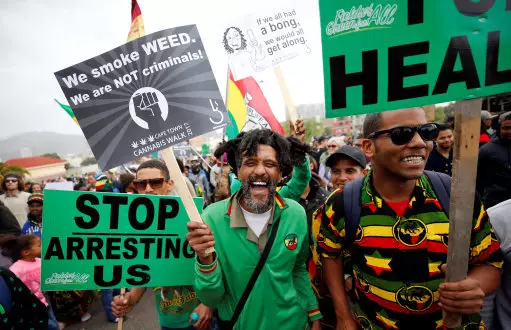
Demonstrators in South Africa march in favour of legalisation. Credit: PA Images
So LADbible spoke to the the executive director of the ASI, Sam Bowman, who makes an argument for legalisation draped in true-blue economics, rather than the red, gold and green sported by Howard Marks fans the world over.
Advert
LADbible: Hey Sam. You're probably not the people who'd spring to mind as enthusiasts for weed legalisation. How does the issue fit with you guys?
Sam: The basic principle we operate under is classical liberalism - we're right-wing economically but we want people to have more money as well as more power and control over their own life, so we're against governments trying to micromanage people's private lives.
It's often seen as an issue that has more support on the liberal left.
Legalising cannabis doesn't have to be a left-wing or a right-wing thing. The concerns that people - particularly on the right - have about cannabis do exist, especially about how the heavy use of it can effect users' mental health. However, we feel those issues are best addressed through a legal and regulated market.
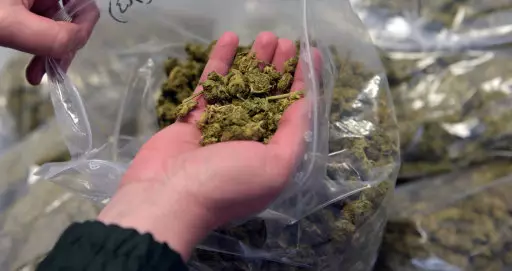
Some of that high-grade shit. Credit: PA Images
Advert
Usually you see the debate framed around the moral and social implications of legalisation - so the perspective of the markets is quite a different way of looking at it.
It might seem that way, but through a legal and regulated market we can have much more control over what people take and who gets to take it.
At the moment, if you're under the age of 18, it's more difficult to get booze in a shop than it is to get drugs from a dealer, because drug dealers don't care whether you're 15 years old or 19 years old, and they don't check ID.
How much do you think legalisation could bring to the economy?
Advert
We don't know exactly, but the black market at the moment is worth about £6billion ($7.8bn) and the estimate we've put forward for how much it could raise in extra tax revenues and lower criminal justice costs is £1bn ($1.3bn).
But what I would say is that I think it's important to make sure the legal market is competitive so it isn't being undercut by the black market, like we currently have with cigarettes because the price over the counter is so high.
Could it have an effect on overall
productivity? If I smoke a joint before work, for instance, I'm
probably not going to be working at full capacity.
I don't think that's something we need to worry about overall, but although there is a certain amount of exaggeration about skunk, there are differences in how high THC strains effect users.
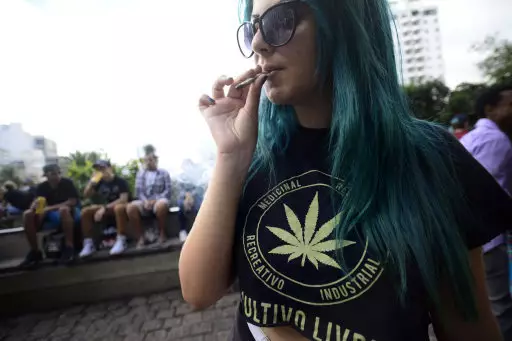
A woman smokes weed in Germany. Credit: PA Images
Advert
Speaking from an economic standpoint, when you make something illegal, the market shifts towards the most concentrated forms of the product - the ones that give you 'more bang for your buck' - which is why we've seen this rise in skunk, despite most cannabis users saying they prefer weaker strains.
In the same ways as the most popular beers are usually the lower-ABV drinks.
Yeah, so imagine if we arrested people for
alcohol possession - people would still want to get drunk and have fun
at the weekend, but the whole market would shift away from beer to
the most concentrated form of the product, which would be spirits
that would be more harmful to people's health.
That's exactly what has happened with cannabis. We've seen a shift from the 'beers and wines' of cannabis to the 'vodkas' of cannabis, which - although there is some exaggeration by opponents of legalisation - can be disturbing to users and trigger mental problems in people who have underlying issues.
We can move away from these more harmful strains, but only if we see legalisation.
How likely do you think it is that we'll see legalisation in the next decade?
It's possible. I'd maybe give it a 50/50 chance of happening in the next 10 years, especially with what's going on in North America, with Massachusetts and California having effectively legalised cannabis as a consumer product and more states likely to follow suit.
Canada will also soon be the first G7 country to legalise cannabis across the entire country.
A lot will depend on the model they go for, but it looks as if Canada will end up with a healthy and flourishing cannabis market, and with the UK and Canada having deep historical and cultural ties, it's possible we will see a rapid change in people's opinions - in the same way as we saw with gay marriage.
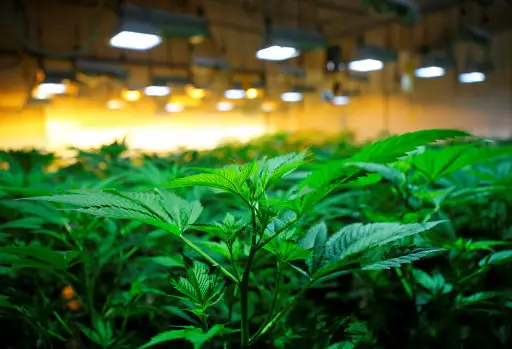
Cannabis grown in an illegal farm in Australia. Credit: PA Images
In the UK we class ourselves as liberal and quite forward-thinking, so it would be quite strange to think that people over here are being sent to jail for a product they can get easily in the US and Canada.
And finally, you only have to go out on a Friday night to see that other drugs have untapped economic potential. Would you like to see the end of prohibition of other drugs, too?
Absolutely - one of the reasons I talk about cannabis is that it's the 'lowest hanging fruit'. The risks are the lowest, so it's the best to use as proof of concept, but really what I would like to see is that after we've legalised cannabis, and proven that we can reduce teenage consumption and the mental health problems that are associated with it, we do the same with other drugs as well.
MDMA and cocaine are the two that would be the most obvious that we could approach in a similar way to cannabis, but I think in general, with legalisation, we might see that a lot of the crime that's associated with drugs would end up evaporating.
Cheers, Sam.
Featured Image Credit: PA Images